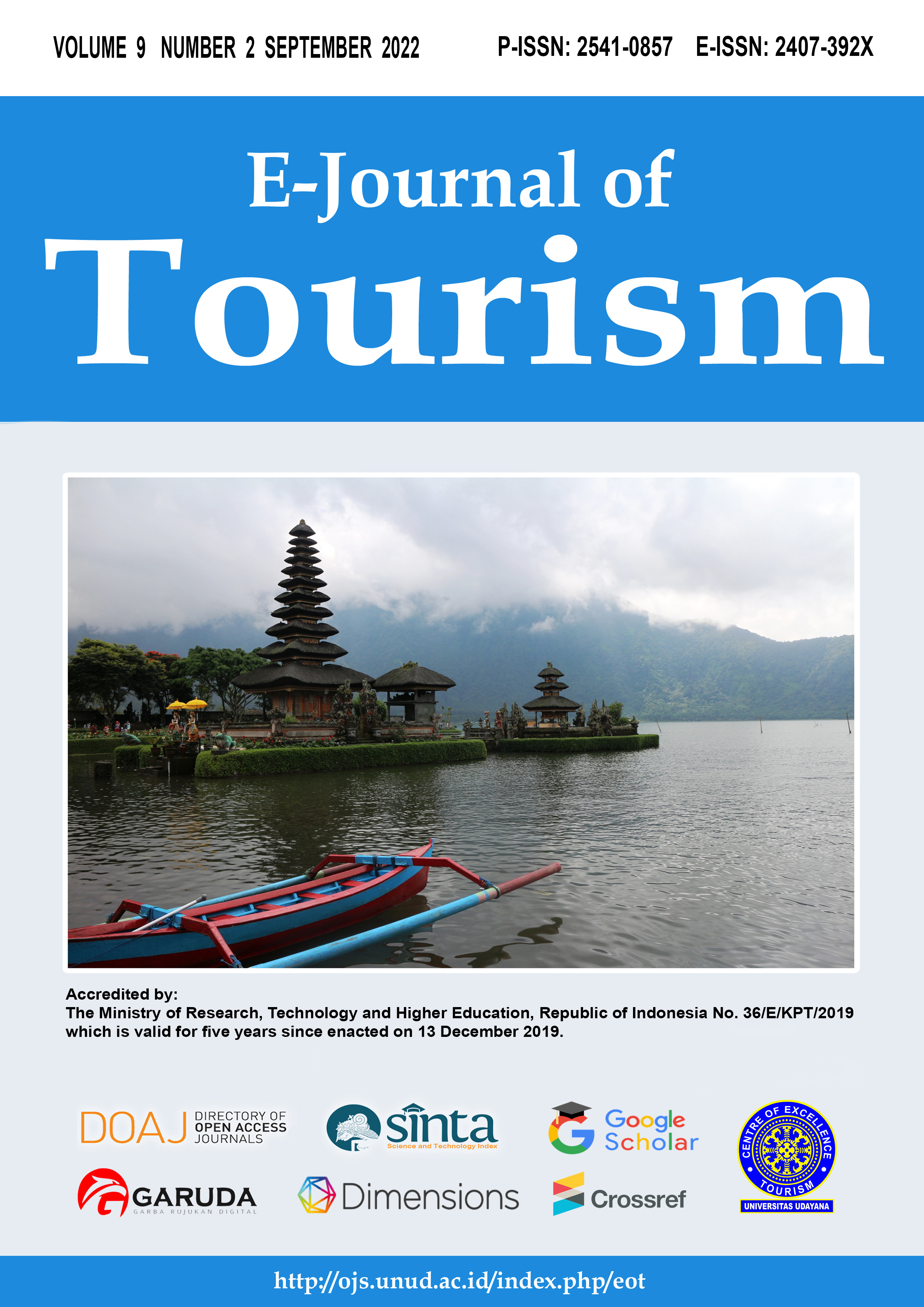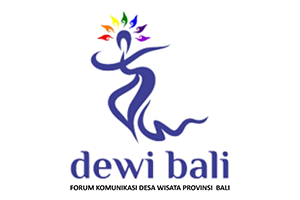The Strategy for Handling the Impact of Covid-19 Pandemic by Sanur Tourism Actors
Abstract
The COVID-19 pandemic has given a negative impact on Sanur tourism, therefore a strategy for handling the impact of COVID-19 pandemic is needed for the restoration of Sanur tourism. This study aims to determine the strategies of tourism actors in handling the impact of COVID-19. This research uses a qualitative approach with a case study research strategy. The method used is observation, interviews, questionnaires and documentation. The theory used is perception theory to identify visitor perceptions and sustainable tourism theory to analyze the effectiveness of implementing strategies for Sanur tourism actors. The results show that the visitor's perception of the image of the Sanur destination is very good, it can be seen from the information received by visitors from Sanur tourism actors is clear, and the end understands the risks and threats when visiting so that visitors do not want to change their travel plans to Sanur. The strategies carried out by Sanur tourism actors are Reduction, Readiness, Response and Recovery. The effectiveness of implementing the strategy is seen from the environmental aspect, namely improving and rejuvenating the environment, the economic aspect of increasing tourist visits and the social aspect of growing awareness (awareness) of tourism actors and the community in the Sanur destination of the risks caused by disasters. The government and tourism actors need synergy in dealing with the impact of disasters on tourism so that they can help and speed up the handling process and minimize the negative impacts that arise.
Keywords: tourism actors strategy; covid-19; tourism crisis.
Downloads
References
Kasali, Rhenald. 1994. Manajemen Public Relations: Konsep Dan Aplikasinya di Indonesia.
Jakarta: Pustaka Utama Grafiti.
Lin, D. & Simmons, D. (2017). Structured inter-network collaboration: Public par-ticipation in tourism planning in South-ern China. Tourism Management
Sesra, Budio (2019). Strategi Management Sekolah : Jurnal Menata Volume 2, No. 2, Juli- Desember 2019.
Sugiyono. (2016). Metode Penelitian Kuanti-tatif, Kualitatif dan R&D. Bandung: PT Alfabet.
Suryaningsih, I. A., & Suryawardani, I. G. A. O. (2021). Strategi Bertahan Hotel Berbintang dalam Menghadapi Situasi Covid-19 di Kabupaten Badung, Bali. Jurnal Kajian Bali (Journal of Bali Studies), 11(2), 387-406
Tosun, C. (2000). Limits to community par-ticipation in the tourism development process in developing countries. Tour-ism Management
Tohirin. 2011. Metode Penelitian Kualtatif dalam bimbingan dan konseling. Jakar-ta: Raja Grafindo Persada.

This work is licensed under a Creative Commons Attribution 4.0 International License.
The copyright of the received article shall be assigned to the journal as the publisher of the journal. The intended copyright includes the right to publish the article in various forms (including reprints). The journal maintains the publishing rights to the published articles.




















